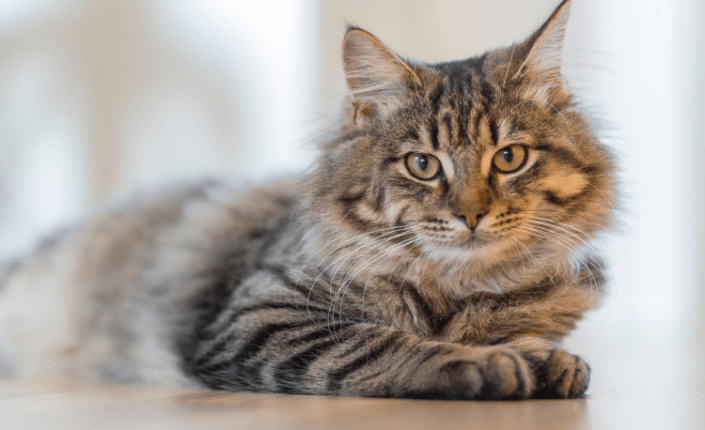Claim of the Month: Feline Pancreatitis

Claim of the Month: Feline Pancreatitis
Pet: Molly*, a 6-year-old Female Domestic Medium Haired Cat
Molly’s Story
Molly normally woke her humans up early every morning, demanding breakfast. When she didn’t appear as she normally did, her mom wondered if something might be wrong. She found Molly hiding under the spare bed, and there were a few puddles of vomit in the hallway. Once coaxed out of her hiding place, Molly appeared dull, listless, and didn’t want to eat or drink anything.
When this strange behaviour stretched into the afternoon, Molly’s family took her to an emergency veterinarian. The doctor found that Molly was suffering from mild dehydration and some abdominal pain. Radiographs and bloodwork were performed to try to get to the bottom of the problem. The tests revealed that Molly was suffering from pancreatitis.
About the Condition: Pancreatitis
The pancreas is an organ with two main jobs in the body: the first job is to manufacture and secrete digestive enzymes to help in the processing of food. The second is to produce insulin to help the body use sugar as energy.
When the pancreas makes digestive enzymes, they remain in an inactive form until they are secreted into the small intestine.
Once the enzymes mix with gastric fluid in the small intestine, they become activated and can start digesting food.
If a cat has pancreatitis, something happens to cause the digestive enzymes to become activated too soon—when they are still inside the pancreas. This results in digestion and damage to the pancreatic tissue, inflammation, pain, and necrosis. The triggers for this process are not well understood, but it is thought that trauma, low blood pressure, some drugs and toxins, and some infectious agents could cause pancreatitis in cats.
Cats with pancreatitis may become lethargic and hide. They show decreased or lost appetite, abdominal pain, vomiting, and sometimes diarrhea. Some drink more than usual, but others drink less.
Pancreatitis can be acute and short-lived with treatment, or it can be chronic and lead to permanent tissue damage. Cats with a history of severe or chronic pancreatitis may develop diabetes because the insulin-secreting cells in the pancreas have been damaged.
Treatment
Treatment of acute pancreatitis usually involves hospitalization. Cats that show signs consistent with pancreatitis receive a full work-up, including examination, bloodwork, urinalysis, and imaging (x-ray and ultrasound). Patients are treated with pain and anti-nausea medications to make them comfortable. IV fluid therapy helps to improve hydration, optimize blood pressure, and reduce pancreatic inflammation. Nutritional support helps cats get through the crisis even though their appetite is low. Some cats need a feeding tube to help maintain their caloric intake and blood sugar while they are ill. Early feeding is a very important part of protecting cats’ livers through a health crisis. Many patients suffer from nausea-related food aversion after a bout of pancreatitis. They need appetite stimulants and extra encouragement to eat. Therapeutic or liquid diets may be used to help cats recover.
Molly was hospitalized for a total of 6 days after her diagnosis of acute pancreatitis. She received many blood tests, x-rays, and ultrasounds to monitor her progress. The severity of her illness meant she did need a feeding tube for nutritional support.
After her appetite started to return and Molly was able to maintain her hydration on her own, she was released to her family to continue recovering at home.
Claim Outcome
Molly’s pancreatitis required intensive veterinary care, costing just over $6,000 over 6 days. Her Pets Plus Us Accident and Illness Max policy has reimbursed her family $4,700** of those fees. We are happy to report that Molly has made an excellent recovery!
Learn more about our Accident and Illness plan.
**Sample claim for illustrative purposes - details have been changed for privacy. Based on 2023 PTZ Insurance Services Ltd. actual claims data. Dollar amounts have been rounded down.